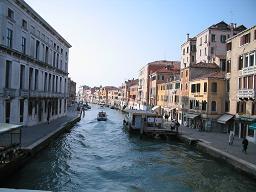I had some time in between class and work today, and I decided I would read the New York Times, which I sometimes do.
The New York Times is my favorite newspaper, because I think it covers a great range of news; there are always stories about what's going on, but there are also often stories about just random, interesting things. One time I read this story about these immigrants who would call this phone number and listen to a preacher in their like, obscure language, and it made it so that they could hang in there for the rest of the week. It kept them going. It was a pretty amazing story. Or another time, there was that story about the berries that made everything taste sweet. NYT, baby.
Anyway, today's paper was a real winner, I thought. Not that there was anything amazing amazing, but there was a lot of great stuff. I read a bunch of it, and skimmed some of it, and I clipped 3 little stories to share on here.
1. From the front page of the NYT, "H.M., Whose Loss of Memory Made Him Unforgettable, Dies". Anyone who has ever taken a psychology class has heard of this guy. He was always called H.M. for privacy, but his name was Henry Gustav Molaison. Basically, he was hit by a bicycle and had been having awful seizures. So he had this experimental surgery which would hopefully fix that, and like, it did. Exceeeppppt, he totally ended up losing the ability to make new memories. So for the next 55 years, everything he did it was like he was doing for the first time. The NYT says, "And for those five decades, he was recognized as the most important patient in the history of brain science." The article says he was patient and always willing to try stuff they had him do, "And yet every time [Dr. Milner] walked in the room, it was like [they had] never met." It was a neat article. They arranged to do final MRI scans hours after he died, and they're having his brain preserved, like Einstein's. Neat article.
2. The next article that I really liked was, "Strangers May Cheer You Up, Study Says," by Pam Belluck. This article was about a study that will be published in BMJ, which is a British journal. (Aha! I found it.) The article included a quote from Dr. Nicholas A. Christakis from Harvard Medical School, who was one of the authors of the study. He said, "Your happiness depends not just on your choices and actions, but also on the choices and actions of people you don't even know who are one, two and three degrees removed from you." The study shows that people who live close to you have a huge influence on your happiness, even without you being aware of it. Like through body language and stuff. "A next-door neighbor's joy increased one's chance of being happy by 34 percent, but a neighbor down the block had no effect. A friend living half a mile away was good for a 42 percent bounce, but the effect was almost half that for a friend two miles away. A friend in a different community altogether can win an Oscar without making you feel better."
The article also mentioned another study, "In a separate study of 1,700 Facebook profiles, they found that people smiling in their photographs had more Facebook friends and that more of those friends were smiling." Interesting.
3. The last article isn't really an article. It's just one of those little blips where they briefly mention what is happening in places around the world. The title was "Zimbabwe: Cholera Emergency" and I thought it was interesting too, mostly because I had no idea about it. The only thing I know about Cholera is that there is a book called Love in the Time of Cholera. Which I haven't even read. I sort of didn't realize it was still a big deal. It is to Zimbabwe, though. They've had 560 people die since August. They desperately need food, drugs, and equipment, and Dr. David Parirenyatwa (whoever that is) said, "Our central hospitals are literally not functioning." Sad! The International Red Cross sent 13 tons of medical supplies, like rehydration fluids, antibiotics, and clothes to protect the medical workers.
I looked up Cholera to see what it actually even is, and basically it's where you consume food or water that is infected with cholera vibrios bacteria, and it messes up your small intestine and you start having exhaustive diarrhea. It's one of the most "rapidly fatal illnesses known" according to Wikipedia. Without medical treatment people can die within 3 hours but typically they make it 18 hours to several days. The only way to survive is to have oral rehydration therapy.
Subscribe to:
Post Comments (Atom)




1 comment:
Those are interesting. Thanks, Emily.
Post a Comment